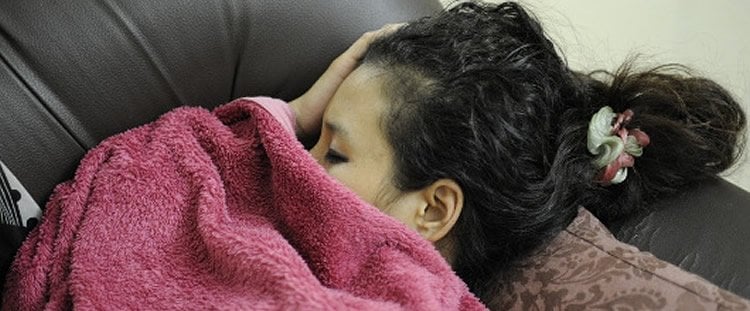A new study from the University of St Andrews has found that getting more sleep may help individuals appear more intelligent to their teachers and prospective employers by influencing their neutral expression.
The research, published in the Journal of Experimental Psychology: General, sheds light on how people may change their perceived intelligence regardless of their attractiveness, and it appears the answer lies in the neutral facial expression.
Lead author Sean Talamas, a post-doc researcher in the School of Psychology and Neurosciences’ Perception Laboratory, explained:
“The infamous ‘attractiveness halo’ is when positive attributes are preferentially ascribed to attractive people over unattractive people. Attractive people are often perceived as more intelligent, but we wanted to investigate how individuals can change their perceived intelligence, regardless of their attractiveness. The solution seems to lie in subtle differences in a resting facial expression that are related to sleep – namely eyelid droopiness and subtle frowning.”
Using special face-processing software, the team of researchers were able to measure the degree of eyelid openness and mouth curvature of 190 faces (children and adults), who were photographed with a ‘neutral expression’. Over 200 evaluators were then asked to rate the attractiveness and intelligence of the faces – the results show that those faces with a subtle frown and droopy eyes were perceived as less intelligent.
Dr Talamas continues: “People over generalise in judging those with droopy eyelids and a frown as being tired and having a low mood, both of which have a well-documented detrimental effect on cognitive performance. Therefore it should be no surprise that many of us find people who look less alert and who have a lower mood as less intelligent looking.”
In collaboration with researchers in the Karolinska Institutet in Sweden, photographs were also taken of the same participants after a full night’s sleep and after a night of restricted sleep. When the same individuals had less eyelid-openness and a subtle frown it resulted in a significant decrease in their perceived intelligence.
David Perrett who runs the Perception Lab commented that “recent scientific advances show how subtle expressions affect judgments but our work is new in demonstrating the impact of apparent tiredness on social judgments. Sleep is not just important for performance but it also affects how others see us”.

Dr Talamas concludes: “The take home message? In an interview with an employer or the front row of a classroom, being cautious of your resting facial expression and getting more sleep may help you look more intelligent. For those on the other side of the issue – someone who looks disinterested, unengaged or tired may be just as intelligent but less aware of the impact of their resting expression.”
Dr Talamas was also the lead author on another published study in Personality and Individual Differences this week which found that individuals who scored higher on intelligence tests were more likely to rate a child’s face they perceived as intelligent as also being attractive. This finding emphasizes that individuals differ in their susceptibility to the attractiveness halo and paves the way for future research to investigate how to target and overcome such bias.
Source: Victoria Herd – University of St. Andrews
Image Credit: The image is adapted from the University of St. Andrews press release.
Original Research: Abstract for “Eyelid-Openness and Mouth Curvature Influence Perceived Intelligence Beyond Attractiveness” by Talamas, Sean N.; Mavor, Kenneth I.; Axelsson, John; Sundelin, Tina; and Perrett, David I. in Journal of Experimental Psychology: General. Published online February 25 2016 doi:10.1037/xge0000152
Abstract
Eyelid-Openness and Mouth Curvature Influence Perceived Intelligence Beyond Attractiveness
Impression formation is profoundly influenced by facial attractiveness, but the existence of facial cues which affect judgments beyond such an “attractiveness halo” may be underestimated. Because depression and tiredness adversely affect cognitive capacity, we reasoned that facial cues to mood (mouth curvature) and alertness (eyelid-openness) affect impressions of intellectual capacity. Over 4 studies we investigated the influence of these malleable facial cues on first impressions of intelligence. In Studies 1 and 2 we scrutinize the perceived intelligence and attractiveness ratings of images of 100 adults (aged 18–33) and 90 school-age children (aged 5–17), respectively. Intelligence impression was partially mediated by attractiveness, but independent effects of eyelid-openness and subtle smiling were found that enhanced intelligence ratings independent of attractiveness. In Study 3 we digitally manipulated stimuli to have altered eyelid-openness or mouth curvature and found that each independent manipulation had an influence on perceptions of intelligence. In a final set of stimuli (Study 4) we explored changes in these cues before and after sleep restriction, to examine whether natural variations in these cues according to sleep condition can influence perceptions. In Studies 3 and 4 variations with increased eyelid-openness and mouth curvature were found to relate positively to intelligence ratings. These findings suggest potential overgeneralizations based on subtle facial cues that indicate mood and tiredness, both of which alter cognitive ability. These findings also have important implications for students who are directly influenced by expectations of ability and teachers who may form expectations based on initial perceptions of intelligence.
“Eyelid-Openness and Mouth Curvature Influence Perceived Intelligence Beyond Attractiveness” by Talamas, Sean N.; Mavor, Kenneth I.; Axelsson, John; Sundelin, Tina; and Perrett, David I. in Journal of Experimental Psychology: General. Published online February 25 2016 doi:10.1037/xge0000152







